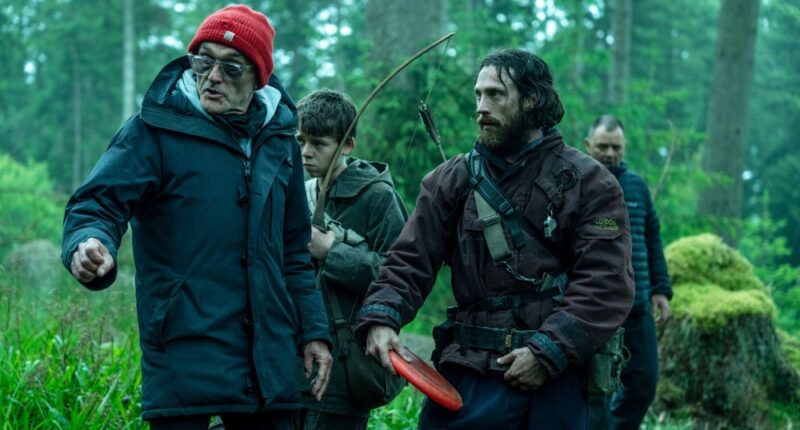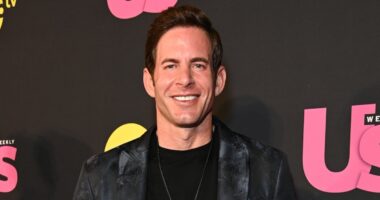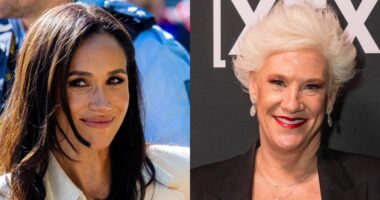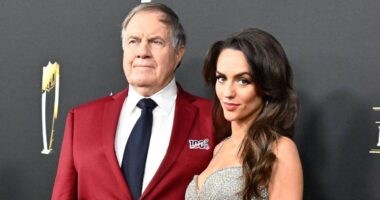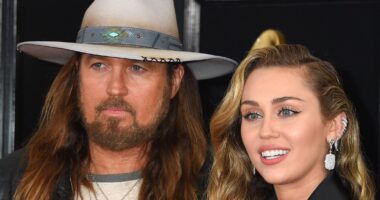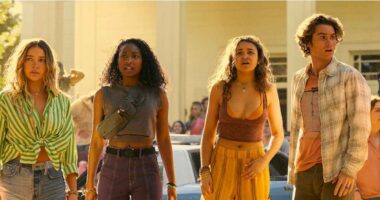SPOILER ALERT: This article contains spoilers about “28 Years Later,” now playing in theaters.
After 23 years, “28 Days Later” producer and director Danny Boyle, writer Alex Garland and cinematographer Anthony Dod Mantle have reunited to make another chapter in the post-apocalyptic franchise. “28 Years Later,” now in theaters via Sony Pictures Releasing, reunited the trio for a third chapter in the series, after Juan Carlos Fresnadillo’s 2007 sequel “28 Weeks Later.” In this new feature, Jodie Comer, Aaron Taylor-Johnson and Alfie Williams play a small family who crosses from their secluded island community over to the zombie-filled mainland to gather supplies and hunt the undead. Things start going south from there.
Various zombie survivalists, played by actors like Ralph Fiennes and Jack O’Connell, also roam around these dangerous zones and can provide as much anxiety for the family as any of the undead.
Variety spoke with Boyle and Garland about writing another chapter after all these years, shooting the film on iPhones and how the studio horror landscape has changed since “28 Days Later.”
Alex, what inspired you to write another chapter in this series?
AG: Danny and I have discussed it many times over the years. The original film hadn’t vanished in the way films can do. It stuck around on the film landscape, and it stuck around in our imagination. So we talked about it, and then sometime after COVID I had a crack at a script, but the script didn’t work. It was too generic, I think. But in a way, having taken the wrong step freed us up to think in a looser, more expansive way. Then another story arrived that was a lot bigger in scope, and at that point, we felt, “OK, this is what we’ll work on.”
You mentioned COVID — did the original script focus on it too much, or not enough?
AG: Actually, it didn’t really touch on COVID at all. What it did was follow a trope of these kinds of things, which had to do with weaponizing the virus. It’s an easy space that one can fall into with these kinds of stories. It’s not saying they’re all bad. I mean, in some ways that’s what “Aliens” is — weaponizing the alien — and it’s a fantastic movie. But certainly, in the execution I did, there was something lazy about it.
I think in terms of the relationship between this film and COVID, what I’d say is there are two ways you can make or approach films. One is you make films about other films, you make films that you loved when you were younger and you reconfigure them and re-explore them and do your version of the film that you loved. The other is that you’re reacting to the world around you, in a way more than other films. I think Danny and I both separately and together fit into that second category. So COVID was something that had happened, so in that respect, it wouldn’t have been possible to work on this film without being informed of it in some way. But that doesn’t mean it was the reason or the instigator or the core theme. It wasn’t.
The image shown is a still from a movie or TV show. There is no caption or description to provide context for what is being depicted in the image.
Jodie Comer and director Danny Boyle on the set of “28 Years Later.”
©Columbia Pictures/Courtesy Everett Collection
Danny, I wanted to ask about the gore and the zombie nudity. Did you get any notes from the studio to cut it down at all, or were they supportive of this extreme vision?
DB: There was a bit of backward and forward, but I think we have to pay tribute to Tom Rothman at Sony, because he took this on. It had a value, the property, because the first film was a success, certainly for the budget it was made for, and continued to have an impact over the years. But he still signed up for a very ambitious trilogy and financed the first two films — the Nia DaCosta-shot second film will come out January 16. I think one of the wonderful things about horror is that you’re expected to maximize the impact of your story. Everybody wants to do that with a drama, with the romance, whatever. But with horror, it’s obviously gonna be brutal, some of it. What we loved was setting it against an innocence that’s represented by the various children in it, and also the landscape, the beauty of the landscape, the nature. Having those two forces stretches your story as far as you can go, if you maximize them. That was our principle and the studio was supportive of that, of course they were.
Alex, I wanted to dive in a little bit about the inspiration behind Jack O’Connell’s Jimmy Crystal. At the end of the film, we’re reintroduced to him as an adult cult leader, which is going to lead into the next movie. Where did you get that idea of his character from?
AG: What he is from is the same thing that the entire film is from in a way, which is this film — and in a way the whole trilogy, if we ever get to make it as a trilogy — is in part about how we look in a regressive way to the past. Very simply, Danny and I grew up in an era where everything was about looking forward in some respects, and currently, for the last 10 or 15 years, we’re in an era that is very much about looking back. What the film is preoccupied with on some level is the way when we look back, there is amnesia, and there is cherry picking. Also, there are things that are misremembered. What the film is, if you look at individual characters, but you also look at the community that’s represented and the elements about the communication and the world-building is a mash of those things: Things that have been forgotten, things that have been cherry-picked and things have been misremembered. They’re smushed so together, which carries within it a kind of commentary.
Danny, I know you reunited with your DP Anthony Dod Mantle. Were there any specific scenes that were extra challenging to shoot on iPhones?
DB: Yeah, and what’s annoying is we can’t show it on YouTube because of its content. It’s the perfect illustration of how we want the cameras to work. There’s a scene where the Alpha drops into the train. You can see his genitals and then what he’s done to poor Erik from Sweden at the end of the shot, all in one. That was challenging to set up, and we were hoping to exploit it a bit more in the promotion of the film. But you can’t, apparently, so you have to go to the cinema to see it. It’s worth it. I don’t normally recommend it directly in that way, but that shot is worth it.
What was it like working with Cillian Murphy again for this trilogy?
DB: He’s an executive producer on this and was enormously supportive. He appears briefly in Nia’s film. I don’t think that’s giving too much away, and our plan is that he will be an enormous character in the third film in the way that Jack O’Connell’s character — who you see briefly at the end of the first film — is an enormous character with Ralph Fiennes in the next film.
Speaking of the third film, Alex: Is the script done on your end? Danny: Do you know when you’ll start production?
AG: The script isn’t written. It’s strange: There’s a story, there’s a plan, there’s a structure. These three films are in some ways distinct from each other, in other ways interrelated, because there are characters that have a through line throughout all of them, although they are also essentially separate stories. It makes it, in filmmaking terms, have something in common with television. Both Danny and I have worked at some point on television, and TV has a slightly more organic element about the way things can unfold. So people might write a whole story arc, but then they will discover in the shooting how that story arc really lands.
I think that, having written the first one, in many ways I didn’t know at that point what the film would be, because there’s a whole set of discoveries left to uncover. The same is also true with the second film. So I had to understand something about what Ralph Fiennes is going to create with Danny, to be able to lean to that. There is always a gap between the thing that exists on the page, as it’s gone through the filter of many people’s imaginations and agendas and preoccupations, and then again in the edit. So short answer: I’ve got the idea, I’ve got the plan, but there’s not a script. I’m waiting to see what happens, I suppose.
Danny, have you noticed any differences in the state of horror movies from the studio system since you first did “28 Days Later”?
DB: Somebody pointed out to me that women now form an important part of the horror audience. I remember vividly somebody telling me — somebody in authority, somebody who seemed to know what they were talking about —when we made the first film, they said, “No women will see this film.” I remember we were trying to big up Naomie Harris’ character in the first film, and I think it was probably a conversation about that. They were dismissive of women watching horror movies. That’s changed and I think that’s a very good thing, obviously.
It’s also perhaps a contribution to why horror has sustained as a genre, and why horror is important for us to maintain the communal cinema experience, because it’s one of those things that people clearly still want to see in a cinema if they can. Their preference is to see it in a cinema. And we should celebrate that, because of those communal experiences as we live life more and more through the technology power that we have in our pockets. We’re kind of encouraged to use that as the first means of communication, the only means of communication in the most extreme. With our fellow citizens to sit together in a dark room and go through the scares, the fears, the joy of watching a horror movie … when they’re good, they are joyful. I think it’s an extraordinary release and not to be undervalued.
